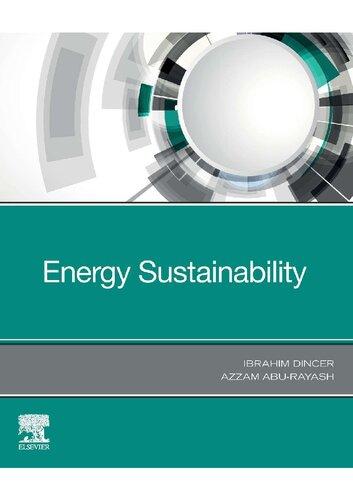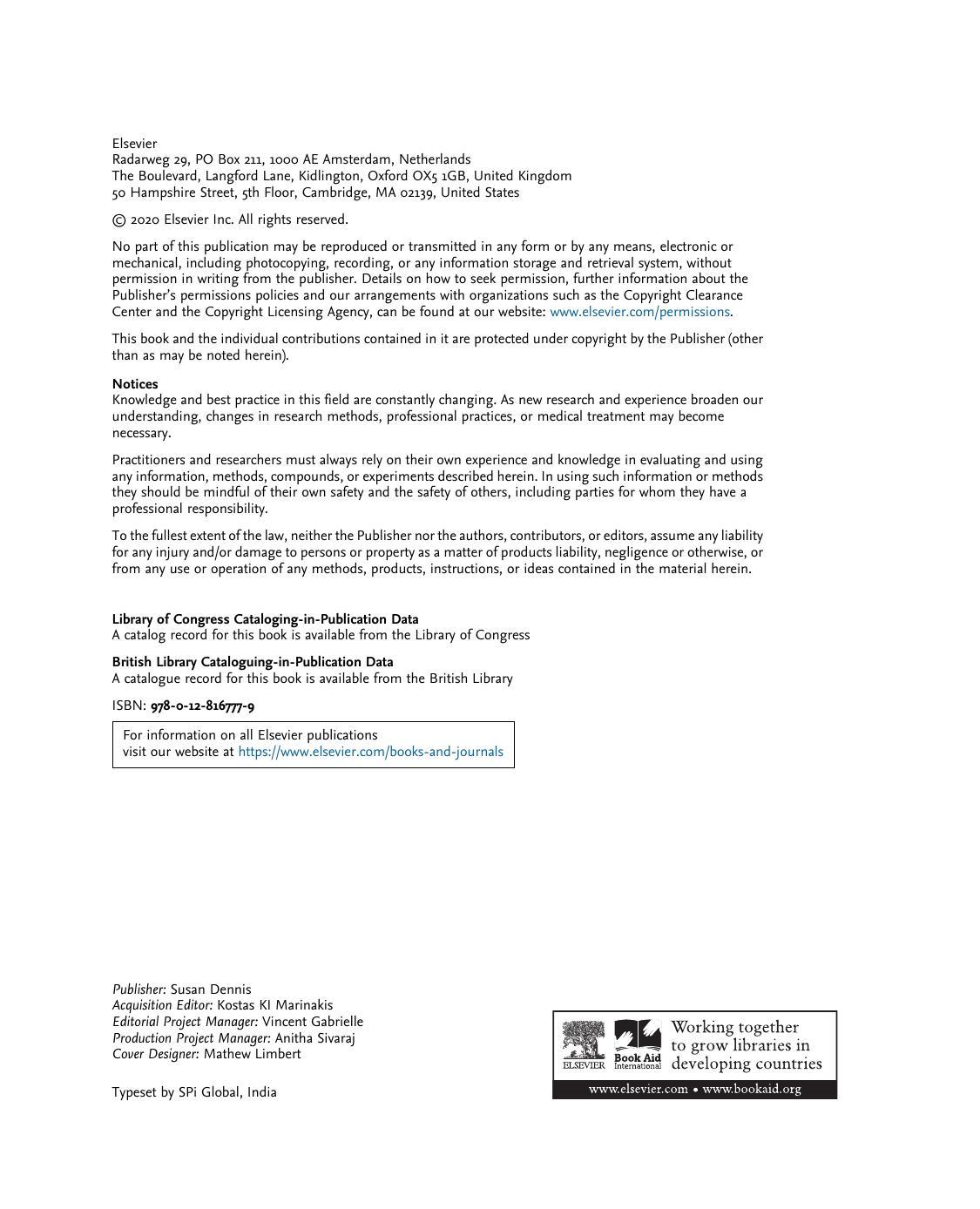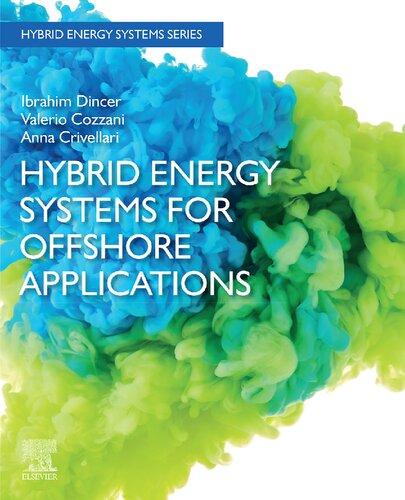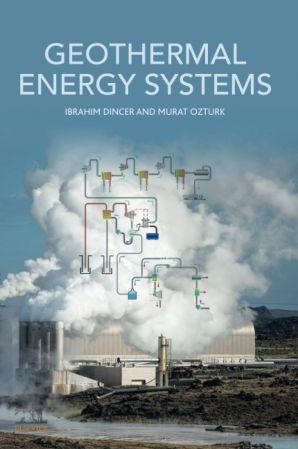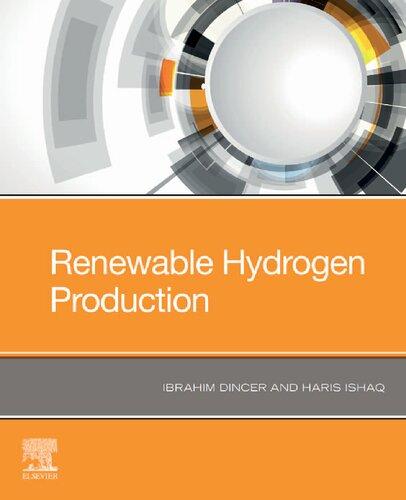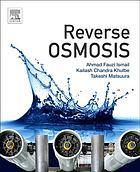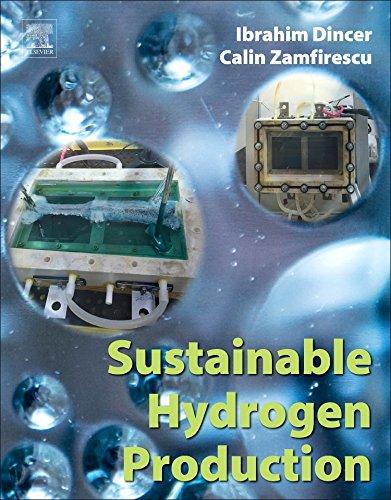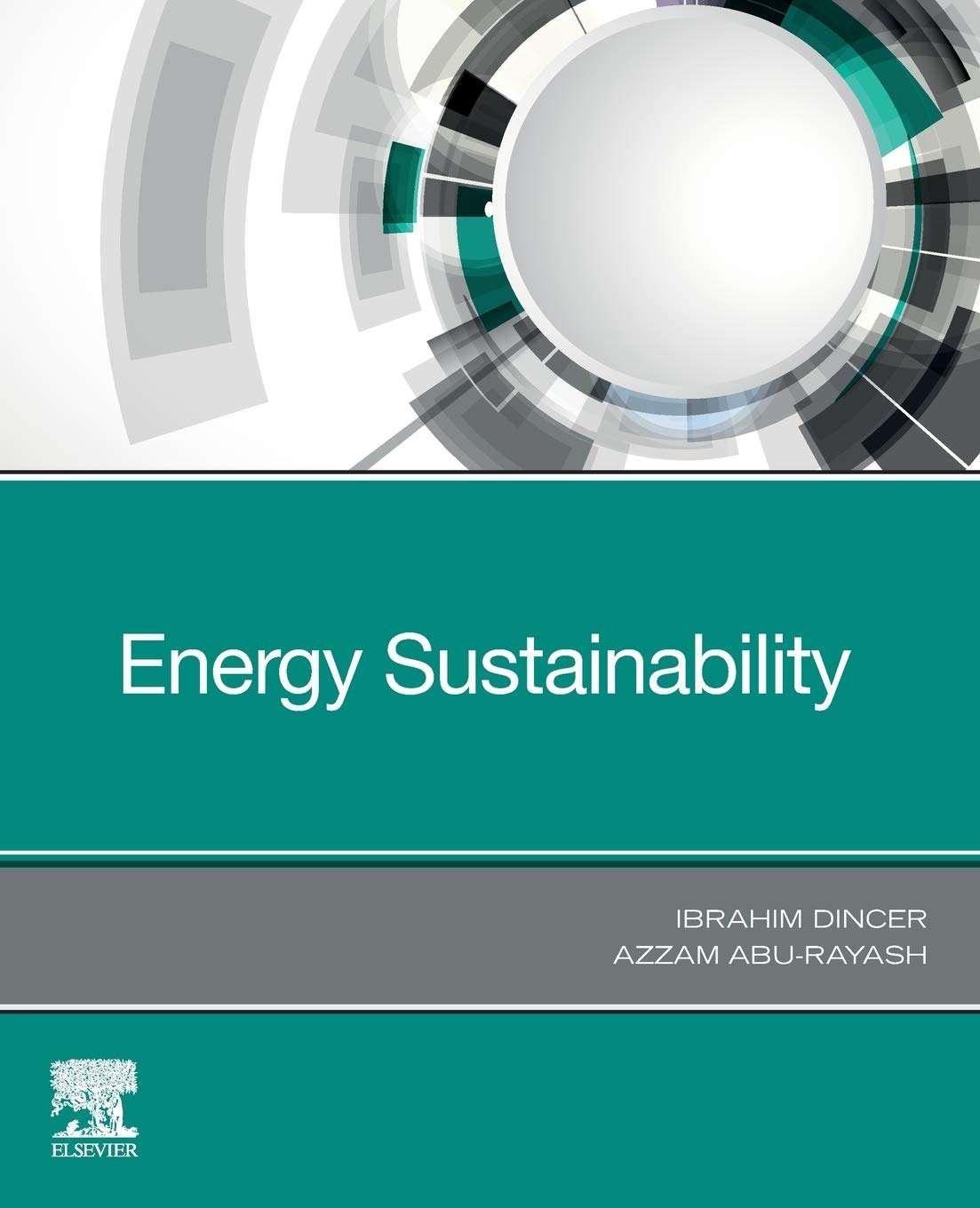Fundamentalaspectsof energy,environment,and sustainability 1
1.1 Introduction
Energyplaysapivotalroleinthedevelopmentandprosperityofnations.Infact,the industrialrevolution,followedbytheoilexplorationscombined,makesupourcurrentdigitalcivilization.Furthermore,asidefrompower,energyinfluencesourlives onadailybasis.Forexample,electricityinfrastructure,thetransportation,andindustrysectorsalldependonenergy.Infact,Holdenetal.(1997)publisheda bookdiscussingthepoliticaleconomyofSouthAfricathroughitstransitionfrom minerals-energycomplextoindustrialization.Inthisbook,energyisadrivingfactor intheeconomyforSouthAfricaandtherestoftheworld,whichconsequentlybecomesamajorfactorinpoliticaldynamics.Moreover,Georgescu-Roegen(2018) dwellsindetailtohighlightthelimitationofnaturalresourcesandtheirimpacton globaleconomy.Inthischapter,theauthoranalyzesenergyoptionsanddiscusses indetailthedegreeofinfluenceeachaspecthasontheglobaleconomy.Ontheother hand,Gomez-Expositoetal.(2018)focusedontheelectricaspectofenergysystems byprovidingadeepandacomprehensiveunderstandingintomodernelectricenergy systems.Topicsofresearchinthisfieldincluderenewablepenetration,smartgrids, andactiveconsumption.Furthermore,electricalaspectsofresearchincludeharmonicanalysis,stateestimation,optimalgenerationscheduling,andelectromagnetictransients.Babuetal.(2013)havesummarizedthehydrate-basedgas separationprocessforcarbondioxideprecombustioncapture.Superhydrophobic surfacesarealsoarecenttopicofresearchforvariousenergy-relatedapplications includingheatexchangers,iceslurrygeneration,photovoltaiccell,electricpower line,andairplanes(ZhangandLv,2015).Thesedevicesbenefitfromthefreezing delayandtheavoidanceoficeaccumulationonsurfacestomaintainoperational function.Inaddition,latestresearchalsorevolvesaroundtheuseofhydrogenas anenergycarrierorsourceforvarioussystems.NastasiandLoBasso(2016)investigatedtheuseofhydrogenasalinkbetweenheatandelectricityinthetransition towardfuturesmartenergysystems.Thedualityintheuseofhydrogenasbotha fuelforcombustionandachemicalforenergystorageorchemicalconversionalong withitsabundancegivesitauniquefeatureaboveotherenergyoptions.Additionally,energystorageisalsoanotherhottopicforresearch.Luoetal.(2015)
EnergySustainability. https://doi.org/10.1016/B978-0-12-819556-7.00001-2
Copyright © 2020ElsevierInc.Allrightsreserved.
investigatedthecurrentdevelopmentinelectricalenergystoragetechnologiesand theirapplicationpotentialinpowersystemoperation.Thisfeaturesthedynamic changesofthegridsystemalongwiththemixedenergysourcesinmodernelectric gridsaswellasthereductioninnaturalresourceandtheexponentiallyincreasing populationoftheworld.Moreover,energystoragesystemsforwindpowerintegrationsupportareinvestigatedbyZhaoetal.(2015).Furthermore,smartenergysystemshavebeenanalyzedfor100%renewableenergyandtransportsolutionsby Mathiesenetal.(2015).Theyidentifiedleastcostsolutionsoftheintegrationoffluctuatingrenewableenergysources.Inadditiontorenewableenergy,utilizationof variousfossilfuelby-productssuchascarbondioxideandnaturalgashydrates arebeingresearched.Chongetal.(2016)reviewedthenaturalgashydratesasan energyresource.Moreover,darkfermentativebiohydrogenproductionfromorganic biomassincludingagriculturalresidues,agro-industrialwastes,andorganicmunicipalwastehasbeeninvestigatedbyGhimireetal.(2015).Infact,furtherresearch anddevelopmenttothistechnologyincludeimprovingthebiohydrogenyieldby optimizingsubstrateutilization,microbialcommunityenrichment,andbioreactor operationalparameterssuchaspH,temperature,andH2 partialpressure.Asfor researcharoundrenewableenergy,atechnicalandaneconomicreviewofrenewable power-to-gasprocesschainisinvestigatedbyGotzetal.(2016)andisthoughtto playasignificantroleinthefutureenergysystems.Inthisprocess,renewableelectricenergycanbetransformedintostorablemethaneviaelectrolysisandsubsequent methanation.Furthermore,thepotentialoflithium-ionbatteriesinrenewableenergy isfurtheranalyzedbyDioufandPode(2015)asamajorenergystoragemediumfor off-gridapplications.Moreover,theintegrationofrenewableenergysystemsintothe futurepowersystemsisresearchedindetailbyWeitemeyeretal.(2015).A modelingapproachtoinvestigatetheinfluenceofstoragesizeandefficiencyon thepathwaytowarda100%RESscenarioispresentedafterusingalong-termsolar andwindenergypowerproductiondataseries.Overall,themainobjectivesbehind latestenergyresearcharetodevelopenvironmentallybenignenergysolutionsas wellasimproveenergystorageoptionsformoresustainableandreliableenergysupplyfromrenewables.Furthermore,theenvironmental,social,andeconomicaspects ofenergydrivethesustainabledevelopmentofallenergysystems.Moreover,unprecedentedrecordsofhighglobaltemperaturesandtheuniversalclimatechange havebeenamajortriggertobecomingmoreenvironmentallyconscious,which eventuallydrivesenergyresearchinthisdirection.
1.2 Energy
Energyisanimportantconstantoftheuniverse.Energyistheabilitytodowork, whereasworkistheactivedisplacementofanobjectbyapplyingforce.Energy seemsneartangibletous,asitispresentindailyactivities.Thisisbecauseenergy isnotasubstanceoranelement,butratheraquantity,derivedfromamathematical relationshipwithothermorefundamentalquantities.Therefore,becauseenergyisa
conservedquantity,energycannotbecreatedordestroyed,rathercanbeconverted informaccordingtothelawofconservationofenergy.TheSIunitusedtocalculate energyisjoule,whichistheenergytransferredtoanobjectbyexertingaforceof1N againstitwhilemovingitadistanceof1m.Ontheearth,mostoflikeispoweredby acentralsourceofenergy,thesun.Radiantenergyfromthesunisemittedintospace afterthesunisheatedtohightemperaturesduetotheconversionofnuclearbinding energy.Moreover,energycomesinvariousformssuchaskinetic,potential,elastic, chemical,gravitational,electric,magnetic,radiant,andthermalenergy.Consequently,energyhasnumerousapplicationsoneverysegmentoflifearoundus. Therefore,energyisveryvaluableasitaffectsusdaily. Table1.1 summarizesthe mainintroductoryaspectsofenergy.
1.2.1 Energyforms
Energycanbeclassifiedintotwomaincategories:kineticandpotentialenergy.Kineticenergyreferstotheenergythatanobjectpossessesduetoitsmotion.Maintainingtheacceleration,theobjectskeeptheirkineticenergy.Ontheotherhand, potentialenergyreflectsthepotentialofanobjecttohavemotionanditisgenerally afunctionofitspositionrelativetothesurroundingfield.Theinteractionbetween kineticandpotentialenergiesresultsinmanytypesofenergy. Fig.1.1 illustrates varioustypesofenergythatresultfromthecombinationofkineticandpotential energies.
Therefore,energycanmanifestitselfinmanyforms.Infact,energycanbe convertedfromoneformtoanotherdependingontheneedandavailableresources. Toelaboratefurtheronthesetypesofenergy, Table1.2 presentsthedifferenttypes ofenergyalongwithashortdescriptofeachandacommonapplicationforeach type.
1.2.2 Energyhistory
Inthe17thcentury,GottfriedLeibnizdefinedthemassoftheobjectanditsvelocity squaredas visviva,orlivingforce.Laterin1807,ThomasYoungusedtheterm“energy”insteadof visviva, whichthenwasdescribedaskineticenergy Later,William Rankinedevisedthetermpotentialenergy.Shortlyafter,thelawofenergyconservationwaspostulatedintheearly19thcentury.In1845,JamesJoulediscoveredthe linkbetweenmechanicalworkandheatgeneration.Allofthesedevelopmentshave
Table1.1 Highlightedsummaryofbasicenergy properties.
Forms of Energy
FIGURE1.1
Formsofenergyemergingfromthecombinationofkineticandpotentialenergies.
Table1.2 Descriptionsofvarioustypesofenergyandexampleapplication foreachtype.
TypeDescriptionApplication
MechanicalEnergyacquiredbyobjects,where workisdoneuponthem. Usingahammertoapplyforceon anail.
ElectricKineticenergyofmovingelectrons.Electricpowerutility. MagneticEnergybymagnetinamagnetic field. Operationoftransformersand inductors.
GravitationalPotentialenergyofanobjectdueto itshighposition. Objectfallingfromtopofabuilding downtotheground.
ChemicalEnergystoredbetweenatomic bonds. Chemicalreactionssuchas burningsugarinhumanbody.
NuclearNuclearreactionsreleasingnuclear energytogenerateheat. Nuclearpowerplants.
RadiantEnergyofgravitationaland radiomagneticradiation. Solarenergy.
ThermalInternalheatwithinasystem responsibleforitstemperature. Warmingupakettle.
ledtothetheoryofconservationofenergy,whichwaslaterformalizedbyLord Kelvinasthefieldofthermodynamics.Thisemergingfieldofthermodynamics aidedtheinvestigationsofchemicalprocessesaswellasledmathematicalformulationsoftheconceptofentropy.
Magne c
Gravita onal Chemical
Energyplayedanintegralandsignificantroleinthedevelopmentofcivilizations asitinfluencedthesocial,economic,andgeopoliticalaspectsofsocietiesacrossthe globe.Thedestructionofmodernorancientsocietieswasduetoanumberoffactors thatdirectlyorindirectlyconnecttotheshortfallofenergyresources.Collapsewas acceleratedbywarsthatemergedduetocompetitionoverscarceenergyresources. Largeenergyabsorptioncanleadtothedestructionofcivilizationsaccordingtohistory.Imaginewhatcouldhappentoourmodernsocietythatisfoundedonexaggeratedenergyconsumption?
Thebasicneedsforhumansenergy-wiseremainsunchanged:heat,light, manufacturing,andtransportation.Humanityhaspassedthroughnumerousstages ofenergydevelopment.Eachhumansocietyhadreliedonenergyinitsdistinct form.However,thepasttwocenturieshavebeenunprecedentedinhumanhistory intermsofenergydevelopmentandtransformation.Theintensityandadvancement ofenergytodayisamajormilestoneinhumanhistory.Thisgreataccelerationon environmentalimpactandeconomicchangesishistoric.Modernlifestyleisradically differentfromthelifestyleofourancestors.Oursocietieshavebeenextremelydependentonenergy.Forexample,lightingatnightisconsideredanecessityandaservice thatisreadilyavailableinthe21stcentury.Inthepast,peoplestruggledwithlighting indooramenitieswithcandlesordriedstripsofvegetablesdippedintoanimalfatand thusproducingafilthysmell.Oncethesunset,theynolongerhadnightillumination orstreetlightsallovertheircities.Heatingwasonlyprovidedinextremecasesofnecessity.Evenwell-to-dofiguresstruggledwithinkfreezingintheinkpot.Now, manufacturingservicesrunatalltimes.Centralairconditioningandtemperaturecontrolhasbecomeanorminoursociety,thuscoolingindoorspaceinthehotsummer daysandheatingthemintheharshwinters.Theseservicescanbeseenasthesame servicesprovidedinthepast(i.e.,heating,lighting,etc.)torunthedailyaffairs.However,theshockisthatnoneoftheseservicescomesfromthesamesourcesastheydid inthe19thcentury.Notevenone.Suchaparadigmshifthasneverbeenwitnessed sincehumanslearnedtoharnessfire.Heat,light,andmotionnotonlyprovideus withnecessaryservicesbutalsoprovideawiderangeofnewservicesthathave becomeavailabletoussuchaspicturesthatcomefromscreenormusicfrom speakers.Asaresultofsuchremarkabletransformation,ourcommandoverresources hasgotmuchstrongerasindividualhumanbeingsandsocietieshaveexpanded. Furthermore,thedegreeofchoicesavailabletoushasimmenselyincreased.
About2millionyearsago,humanslearnedtomanufacturetoolsforhunting. Around500,000yearsagoorearlier,humansdiscoveredtheuseoffire.Firewas usedtocreateandtodestroy.Itprovidedlightandwarmthandalsowasusedasa weapontokill.Withthisnewresource,humanswereabletoshapetheirenvironmentsbyselectivelycreatingordestroyingwhatwasnecessaryfortheirsurvival. Lateon,humanslearnedtousethefireforcraft(i.e.,meltingmetalsorhardening clary),whichenabledthemtotriggermoreenvironmentalchanges.About 18,000yearsago,theanimalpowerwasamajorsourceofpower.Domestication ofanimalsenabledhumanstocaptureanewsubstantialenergysource.Sheep,goats, andcowsprovidednotonlyareliablefoodsourcebutalsoapredictablemobile
sourceofenergyfornomadpopulations.Around10,000yearsago,somenomad populationsbegantosettlenearriversandfertilelandtodevelopmorereliable andconsistentsourcesofenergy.Permanentsettlementsandthepopulationgrowth urgedhumansocietiestorelyontheresourcesaroundthemfromtrees,soil,water, andanimalstosatisfytheirneeds.Around8000yearsago,theuseofanimalstopull cartsbegan,whichcausedagriculturetoflourish.Stationarytaskssuchasmillingof grain,pumpingofwater,andothermechanicalconversionsofenergyonlyemerged inthe19thcentury.In2000BC,earlymissionariestoChinahavereportedthatcoal wasalreadybeingusedforheatingandcooking,makingtheChinesetobethefirstto usecoalforenergyuse.Thereportalsomentionsthatcoalhasbeenutilizedformore than4000years.Inanotherreport,MarcoPolohighlightsthewidespreaduseofcoal inChinainthe13thcentury.Indeed,coalmighthavebeenusedbymammoth huntersinEasternEurope.InmedievalEurope,theexistenceofcoalwasalsorecognized,yetignoredduetothesootandsmoke.Woodwasfavoredovercoaluntilthe 13thcentury.TheGreeksalsorecognizedcoalfromageologiccuriouspointofview. Aristotlementionedcoal,andthecontextimpliesthathewasreferringtoitasamineralofearthnotasanenergysource.DuringtheBronzeAge,coalwasusedinsouthernWales.TheRomansusedcoalinlargequantitiesinmultiplelocations.Afterthe Romanshaveleft,theuseofcoalstoppeduntilthesecondmillennium.Ligniteand peataregeologicprecursorstocoal,andtheywereusedinnorthernandWestern EuropeinthefirstcenturyAD.IndicationspointattheNetherlands,wherepeat wasusedasafuel.RomansburnedcoalnearSt.Etienne,whichlaterbecameamajor Frenchminingcenter.CoalmininginIndiatracesbacktothe18thcentury.However, namesandsignsintheBengal-Biharregionindicatethatcoalmayhavebeenusedin theseareasinancienttimes.Thefirstpracticaluseofnaturalgasisalsotracedback totheChinesein200BC,wheretheyusedtomakesaltfrombrineingas-firedevaporators,boringshallowwells,andconveyingthegastotheevaporatorsthrough bamboopipes.Inthesameeraof200BC,Europeansharnesswaterenergytopower mills.Theinventionofthisverticalwaterwheelpoweredmills,whichrefreshed variousindustries.Italsodecreasedthedependenceonhumanandanimalmuscle fortheproductionofpower.Furthermore,siteswithdecentwaterpowerpotential havebecomemorefavorable,andcommunitiesstartedtobeestablishedaround theseplaces,causingeconomic,industrial,andsocialgrowth.Inthefirstcentury, theChinesehaverefinedpetroleumtouseitasanenergysource.ShengKuo (1031 1095)havedocumentedthattherewasalotofoilinthesubsurfaceand thatitwasinexhaustible.Theyappliedpetroleumforlamps,aslubricantsinmedicine,andotheruses.Inthe10thcentury,windmillswerebuiltinPersiatogrindgrain andpumpwater.ThistechnologyspreadtoChinaandtheMiddleEast,where farmersusedthemtoirrigatecrops,pumpwater,andcrushsugarcane.
Thehistoryofenergycontinuestoourcurrentmodernsocieties,whererenewableenergyisontheriseandfossilfuelsareinfluencingtheenvironmentsignificantly.Moreover,energyconsumptionpercapitavariesfromcountrytoanother. Fig.1.2 demonstratestheannualaverageenergyconsumptionpercapitaforthe 20largestenergy-consumingcountriesintheworldalongwiththeglobalaverage.
Another random document with no related content on Scribd:
their Russian officers, on condition that the latter are completely under the orders of the Minister of War. This arrangement was ratified at a meeting between the commanders and Colonel Liakhoff. Teheran is quiet, and the Persian Cossacks are already fraternizing with the Fedai. The Sipahdar has been appointed Minister of War, and the Sirdar Assad Minister of the Interior." Being asked if he would represent to the Russian Government the undesirability of advancing Russian troops to Teheran, Sir Edward added: "In view of the declarations already made by the Russian Government as to the circumstances under which alone Russian troops would be sent to Teheran and in view of the fact that no troops have been sent to Teheran during the recent troubles, in spite of the fact that at one time some apprehension, which happily proved to be unfounded, was expressed for the safety of Russian subjects, such representations would be most uncalled for."
On the 17th the Provisional Government gave notice to the Anglo-Russian legations of the selection of the new Shah, and asked that he should be delivered to their keeping; whereupon, wrote the Times correspondent, "M. Sablin announced the request to the Shah, who replied that he thought his mother would not consent. The Shah then took M. Sablin to his mother and an affecting scene ensued. Both the mother and father broke down at the thought of parting with their favourite son and offered their second son in his place. M. Sablin replied that the selection had been made by the people and that he had no voice in the matter. The boy wept bitterly in sympathy with his parents and declined to leave his mother. Finally their Majesties were persuaded to agree. On receiving the Shah’s assent, the necessary proclamation was immediately promulgated and it was arranged that the Regent and a Nationalist deputation would receive the little Shah.
"An interested crowd witnessed his departure this morning from the custody of his natural guardians. During the morning Sultan Ahmed wept bitterly at the prospect of becoming a King,
and it required a stern message to the effect that crying was not allowed in the Russian Legation before he dried his eyes. Then the little man came out bravely, entered a large carriage, and drove off alone, escorted by Cossacks, Sowars, and Persian Cossacks and followed by a long string of carriages. At Sultanatabad he was met by the Regent and the deputation and ceremoniously notified of his high position and of the hope entertained by the nation that he would prove to be a good ruler.
‘Inshallah, I will,’ replied the lad. Arrangements for the Coronation will be made hereafter. In the meanwhile the little Shah, who is guarded by a Bakhtiari, remains with his tutors at Sultanatabad, where his mother is free to visit him."
At Teheran, affairs settled quickly into quiet, but disorders were prolonged in various parts of the provinces, being especially serious at Shiraz. The deposed Shah remained for weeks at the Russian Legation, while negotiations with him for a pension or allowance in return for his surrender of jewels and money to the State went on, and the unhappy child who occupied his palace had more sorrow than he.
Early in August Colonel Liakhoff returned to Russia and was appointed to a regimental command. On the 1st of September a general amnesty, with a few exceptions, was proclaimed by the new government at Teheran. On the 9th of September the deposed Shah left the shelter of the Russian Legation and journeyed, with his queen, four younger children and several friends, under Russian escort, to a residence in Russia, at Odessa, which was his choice. Persia was still waiting for the able and much trusted constitutionalist statesman, Nasr-ul-Mulk, to return from his exile at Paris and accept the offered premiership in the government; but on the 21st of September the report went out that he had definitely declined the post. He returned to Persia, however, in October. On the 11th of October the Russian Government made known that it had decided
to withdraw the greater part of the troops it had been keeping at Tabriz. A new Mejliss, for which the Regent had ordered elections, was assembled on the 15th of November. On the 7th of December the Mejliss unanimously approved the proposals of the Government with regard to borrowing abroad and the employment of Europeans in executive capacities for the reorganization of the Finance Department. This, no doubt, will improve the situation very greatly.
PERSIA: A. D. 1909 (January). Destructive Earthquake in Luristan.
See (in this Volume) EARTHQUAKES: PERSIA.
----------PERSIA: End--------
----------PERU: Start--------
PERU: A. D. 1899-1908. Outline of History.
The leading events of Peruvian history are recorded in Volume VI. of this work down to the election of President Eduardo de Romaña, in 1899. "Romaña was a member of a prominent family of Arequipa, and had been educated in England, at Stonyhurst. He further had studied for, and taken a degree as, an engineer at King’s College, London; and whilst he had not acquired much experience in politics, he nevertheless successfully filled the Presidential Chair throughout his term. He was alive to the necessity for the development of the resources of the country, and, fortunately, his administration was not embarrassed by disturbances other than some small political intrigues such as inevitably take place in a country which, as Peru, was evolving a régime of civil government. {491}
During this term there was some influx of North American
capitalists, who acquired important interests, in the copper mines of Cerro de Pasco, and who commenced the construction of a railway line thereto. … The presidency of Señor Romaña uneventfully expired at its natural time; elections were held, and Señor Manuel Candamo, who had already provisionally been head of the State, was chosen as president in May, 1903. Candamo had been successful in quieting political animosities after the revolt against Caceres and in consolidating the political situation. Peru now showed real evidences of advancement. The old turbulent element was passing away; those leaders who had placed purely personal ambition before the true interests of their country had given place to the natural talent and ability of the best citizens, whom the times were calling to the front. Candamo’s rule promised well for the country. He was surrounded by able men, among whom, as chief cabinet minister, was Dr. Domingo Almenard, an upright lawyer. The fiscal revenue was increased by taxes, against which there were murmurings, but which the country was able to bear, and the tax on tobacco was set apart for the construction of new railways. Unfortunately, this able administrator, Señor Candamo, continued but a short time in office, for he was overtaken by illness, and died at Arequipa in May, 1904. This event left the country under the temporary leadership of the second vice-president, Señor Calderon, for the first vice-president had died also. An election was at once called according to law, the two candidates which were put forward being Dr. Jose Pardo, son of the former president of the same name, and Señor Nicolas Piérola, who had already been at the head of the Government on two occasions. Rivalry between the partisans of these two candidates became acute, and although it was feared for a moment that some disturbance might occur, good sense prevailed, and the elections proceeded without interruption. Both contestants were good men Piérola representing the party known as the Democratas, whilst Pardo headed the Civilistas. There were not very radical differences of principle underlying these distinctions of name; both were for civil government and for national
progress. Piérola had done good work during his former term, whilst Pardo had the prestige of the good name and administration of his father, the former president of 1872-1876, and was also held in esteem personally among the best element of the country. The result of the election held, probably, more fairly than ever in Peru before fell to Dr. Pardo, who took the presidential scarf and office in September, 1904, and who still guides the affairs of his country in a manner which has won the esteem of the nation, in a general sense.
Dr. Pardo’s Cabinet was formed of some of the most capable men in the country, prominent among whom was the minister of Finance, Señor Leguia, to whose work is largely due the improved financial situation. At the present time 1908 the best elements of Peru are in the ascendant."
G. Reginald Enock,
Peru: Its Former, and Present Civilization, History and Existing Conditions, chapter 9 (Scribner’s Sons, New York).
PERU: A. D. 1901. Broad Treaty of Arbitration with Bolivia.
See (in this Volume) ARBITRATION, INTERNATIONAL: A. D. 1901 (NOVEMBER).
PERU: A. D. 1901-1906. Participation in Second and Third International Conferences of American Republics.
See (in this Volume) AMERICAN REPUBLICS.
PERU: A. D. 1903-1909.
Boundary disputes in the Acre region with Bolivia and Brazil.
See (in this Volume)
ACRE DISPUTES.
PERU: A. D. 1905.
Arbitration Treaties with Colombia and Ecuador.
In a message to the Peruvian Congress, July 28, 1906, President Pardo communicated treaties of arbitration with Colombia, one general in its nature, the other special for the settlement of existing boundary questions. Of the latter the message said:
"As in former treaties of the same character which have been heretofore concluded with that Republic, the controversy is submitted to the decision, to be based upon considerations of equity, of His Holiness Pope Pius X. But as our question with Colombia is connected with the one with Ecuador, it has been agreed that the arbitration with Colombia shall only take place after the termination of the one in which we are now proceeding with Ecuador, upon the adjudication by the royal Spanish arbitrator to Peru of territories which are likewise claimed by Colombia."
PERU: A. D. 1906.
Decree for the Encouragement of Immigration.
See (in this Volume)
IMMIGRATION AND EMIGRATION: PERU.
PERU: A. D. 1907.
Diplomatic Relations with Chile reëstablished. The Tacna and Arica questions remaining open.
See (in this Volume)
CHILE: A. D. 1907.
PERU: A. D. 1908-1909.
Seating of President Leguia.
Attempted Revolutions defeated.
On the 27th of May, 1908, Augusto B. Leguia became President, succeeding Dr. Pardo. Señor Leguia had previously been Premier and Minister of Finance and Commerce; prior to which he had been managing director of a great English sugar company in Peru. A revolutionary movement had been attempted a few weeks before, in which Dr. Augusto Durand and Isaias Piérola were engaged, and which suffered defeat.
A year later, on May 29, a similar attempt was announced from Lima, and ascribed to the same "agitators," who, said the despatch, "made an assault upon the palace and seized President Leguia. The army, however, remained loyal and came to his support. The revolutionists were obliged to liberate the President, who immediately took measures to put down the movement. Within an hour, although firing was still heard in the streets, President Leguia seemed to be master of the situation. Many shots were exchanged between the troops and the revolutionists and it is believed that the casualties will be heavy."
This was contradicted a week later, so far as concerned Dr. Durand. "It has been proved," said the later statement, "that the revolutionary outbreak of last week was engineered entirely by the followers of the Piérola brothers. A committee of the Liberal party to-day visited President Leguia, and, declaring that neither Dr. Durand nor José Oliva had taken part in the movement, requested that these men be set at liberty. The country is quiet."
----------PERU: End--------
PETER I., King of Servia: His Election.
See (in this Volume) BALKAN AND DANUBIAN STATES: SERVIA.
{492}
PETIT, Archbishop Fulbert.
See (in this Volume)
FRANCE: A. D. 1905-1906.
PETROLEUM: The Supply and the Waste in the United States.
See (in this Volume) Conservation of Natural Resources.
PETROPALOVSK, SINKING OF THE.
See (in this Volume)
JAPAN: A. D. 1904 (February-August).
PHAGOCYTES: THEIR DEPENDENCE ON OPSONINS.
See (in this Volume) SCIENCE AND INVENTION, RECENT: OPSONINS.
PHILADELPHIA: A. D. 1905. A Spasm of Municipal Reform.
See (in this Volume) MUNICIPAL GOVERNMENT.
PHILADELPHIA: A. D. 1909. Defeat of Reform.
See (in this Volume) MUNICIPAL GOVERNMENT.
ISLANDS: Start--------
PHILIPPINE ISLANDS:
Gains to Spain from their Loss.
See (in this Volume) SPAIN: A. D. 1898-1908.
PHILIPPINE ISLANDS: A. D. 1900-1902. The Stamping Out of the Bubonic Plague.
See (in this Volume) PUBLIC HEALTH.
PHILIPPINE ISLANDS: A. D. 1901.
Second Report of the Second Philippine Commission. Collapse of the Insurrection. Peace in all but five Provinces. Organization of Provincial Governments. Native Appointments. Central Civil Government.
Appointment of Governor Taft. Filipino Members added to Commission.
Down to the capture of Aguinaldo, leader of the Filipino insurgents, on the 23d of March, 1901, and his submission to "the sovereignty of the United States throughout the Philippine Archipelago," as announced in an address to his countrymen on the 19th of April, the history of American rule in those islands is recorded in Volume VI. of this work. The Second Philippine Commission, with the Honorable William H. Taft at its head, had entered on the performance of its extensive legislative duties on the 1st of the previous September, while the Military Governor continued to exercise
administrative powers. The Commission had begun the organization of provincial and municipal governments, and the establishing of a system of public schools, as related in the Volume referred to. From its second report, covering ten months and a half, ending on the 15th of October, 1901, the following statements are drawn, to continue the outline of principal events and most important affairs down to that date:
"The collapse of the insurrection came in May, after many important surrenders and captures, including that of Aguinaldo. Cailles, in Laguna, surrendered in June, and Belarmino, in Albay, on July 4.
"There are four important provinces in which the insurrection still continues, Batangas, Samar, Cebu, and Bohol. Parts of Laguna and Tayabas adjoining Batangas in the mountain region are affected by the disturbances in Batangas. In Mindoro also, a thinly settled and almost unexplored island, there are insurrectos. … Outside of the five provinces named there is peace in the remainder of the archipelago. …
"The work of the commission since it began to legislate in September, 1900, has been constant. … We have passed since our last report, in addition to numerous appropriation bills, a municipal code, a provincial law, a school law, a law prescribing an accounting system, acts organizing the various bureaus of the central government, acts organizing the courts, an act to incorporate the city of Manila, a code of civil procedure for the islands, and a new tariff act. …
"The general provincial law provides for a provincial government of five officers the governor, the treasurer, the supervisor, the secretary, and the fiscal, or prosecuting attorney. The governing board is called the provincial board, and includes as members the governor, the treasurer, and the supervisor. The prosecuting attorney is the legal adviser of the board and the secretary of the province is its secretary.
The first function of the provincial government is to collect, through the provincial treasurer, all the taxes, with few exceptions, belonging to the towns or the province. Its second and most important function is the construction of highways and bridges and public buildings. Its third function is the supervision, through the governor and the provincial treasurer, of the municipal officers in the discharge of their duties. Within certain limitations, the provincial board fixes the rate of levy for provincial taxation.
"The governor has the power to suspend any municipal officer found failing in his duty, and is obliged to visit the towns of the province twice in a year, and hear complaints against the municipal officers. … Under the act the offices are all to be filled at first by appointment of the commission. The governor holds his office until February, 1902, when his successor is to be elected in a mass convention of the municipal councilors of the towns of the province. The secretary, treasurer, and supervisor after February next are brought under the civil-service act, and all vacancies thereafter arising are to be filled in accordance with the terms of that act. The fiscal is appointed for an indeterminate period, and is not subject to the civil-service law. …
"The commission reached the conclusion that it would aid in the pacification of the country; would make the members of that body very much better acquainted with the country, with the people, and with the local conditions, and would help to educate the people in American methods, if the commission went to the capital of each province and there passed the special act necessary to create the provincial government and made the appointments at that time. Accordingly, the commission visited thirty-three provinces. …
{493}
"The policy of the commission in its provincial appointments has been, where possible, to appoint Filipinos as governors and Americans as treasurers and supervisors. The provincial secretary and the provincial fiscal appointed have uniformly been Filipinos. It will be observed that this makes a majority of the provincial board American. The commission has, in several instances, appointed to provincial offices former insurgent generals who have been of especial aid in bringing about peace, and in so doing it has generally acted on the earnest recommendation of the commanding officer of the district or province. We believe the appointments made have had a good effect and the appointees have been anxious to do their duty. …
"The central government of the islands established in September, 1900, under the instructions of the President, with a military governor as chief executive and the commission as the legislative body with certain executive functions in addition, continued until the 4th of July, 1901. At that time Major General Adna R. Chaffee relieved Major-General MacArthur as commanding general of this division and military governor. By the order of June 21, previous, in all organized provinces the civil executive authority theretofore reposed in the military governor and in the commission was transferred on July 4 to a civil governor. The president of the commission was designated as civil governor. …
"By an order taking effect September 1, the purport of which was announced the 4th day of July, there were added to the commission, as a legislative body, three Filipinos, Dr. T. H. Pardo de Tavera, Señor Benito Legarda, and Senor José Luzuriaga. These gentlemen, the first two of them residents of Manila and the last a resident of the island of Negros, had been most earnest and efficient in bringing about peace in the islands. Dr. Tavera was the first president of the Federal party, had accompanied the commission in its trips to the southern provinces, and was most useful in the effective
speeches which he delivered in favor of peace and good order at every provincial meeting. Señor Legarda had been valuable in the extreme to General Otis and to all the American authorities by the wisdom of his suggestions, and the courage and earnestness with which he upheld the American cause as the cause most beneficial to his country. Señor José Luzuriaga was a member of the first government of the island of Negros, organized while there was insurrection rife throughout the islands, as an independent government under the supervision of a military governor, and was most active in preventing the insurrection from gaining any foothold in that important island. …
"The theory upon which the commission is proceeding is that the only possible method of instructing the Filipino people in methods of free institutions and self-government is to make a government partly of Americans and partly of Filipinos, giving the Americans the ultimate control for some time to come. In our last report we pointed out that the great body of the people were ignorant, superstitious, and at present incapable of understanding any government but that of absolutism. The intelligence and education of the people may be largely measured by knowledge of the Spanish language. Less than 10 per cent of the people speak Spanish. With Spaniards in control of these islands for four hundred years and with Spanish spoken in all official avenues, nothing could be more significant of the lack of real intelligence among the people than this statement. The common people are not a warlike people, but are submissive and easily indeed much too easily controlled by the educated among them, and the power of an educated Filipino politically ambitious, willing to plot and use all the arts of a demagogue in rousing the people, is quite dangerous. The educated people themselves, though full of phrases concerning liberty, have but a faint conception of what real civil liberty is and the mutual self-restraint which is involved in its maintenance. They find it hard to understand the division of powers in a government, and the
limitations that are operative upon all officers, no matter how high. In the municipalities, in the Spanish days, what the friar did not control the presidente did, and the people knew and expected no limit to his exercise of authority. This is the difficulty we now encounter in the organization of the municipality. The presidente fails to observe the limitations upon his power, and the people are too submissive to press them. In this condition of affairs we have thought that we ought first to reduce the electorate to those who could be considered intelligent, and so the qualifications for voting fixed in the municipal code are that the voter shall either speak, read, and write English or Spanish, or that he shall have been formerly a municipal officer, or that he should pay a tax equal to $15 a year or own property of the value of $250."
Report of the U. S. Philippine Commission, from December 1, 1900, to October 15, 1901, part 1, pages 7-20.
PHILIPPINE
ISLANDS: A. D. 1901-1902.
Report of Governor Taft.
Civil Government established in all Christian Filipino Territory.
The Moros.
Destruction of the Carabao.
Cholera.
Ladrones.
The Native Constabulary.
"When our last report was submitted there was insurrection in the province of Batangas, where the insurgent forces were commanded by General Malvar, and in the adjacent provinces of Tayabas and Laguna; in the province of Samar, where the insurgent forces were commanded by General Lukban; in Cebu, where the insurgent forces were under the insurgent leaders Climaco and Maxilom; in Bohol, where the insurgent forces were
commanded by the insurgent leader Samson; and in the island of Mindoro. Vigorous campaigns were begun in November and December by General Bell, in Batangas, Laguna, Tayabas, and Mindoro, by General Smith in Samar, and by General Hughes in Cebu and Bohol. In November and December the insurgents in Cebu and Bohol surrendered, and conditions of peace were so completely established that the Commission soon after received the province of Cebu from the military authorities, and by act numbered 322, passed December 20, 1901, restored the civil government in that province to take effect January 1, 1902; in Bohol the province was delivered over to the Commission early in 1902, and the commission, by act of March 3, 1902, restored civil government there to take effect April 1, 1902. General Lukban, in Samar, was captured in February, 1902, and the entire force of insurgents in that island under General Guevara surrendered in April following.
{494}
"By an act passed June 17, 1902, Number 419, the Commission organized the province of Samar, and established civil government there. In April of 1902, General Malvar surrendered with all his forces in Batangas, and by act passed June 23, 1902, the Commission restored civil government to that province to take effect July 4, 1902. By act Number 424, enacted July 1, 1902, the province of Laguna was organized into a civil government. This completed the organization of all the provinces in which insurrection had been rife during the latter part of 1901, except Mindoro. There were, in addition, certain tracts of territory occupied by Christian Filipinos that had not received civil government, either because of the remoteness of the territory or the scarcity of population." The report then details the measures by which civil government was given to these tracts of territory, and proceeds:
"The question what shall be done with respect to Mindanao is
one which has not been definitely decided, first, because so much has had to be done with respect to the northern and Filipino provinces, and, second, because at present there is an unsettled condition in the Lake Lanao country. The hostility to the Americans does not reach beyond the Lake Lanao Moros. The Moros of the Jolo group, of Zamboanga, and of the Rio Grande de Mindanao Valley are all quiet, and all entirely willing to submit to American supervision. It is very possible that an arrangement can be brought about by which the Sultan of Jolo can be induced to part with such rights as he claims to have in the Jolo Archipelago, and in this way questions which now present very perplexing difficulties with respect to ownership of privileges, rights, and lands may be obviated. … I think it wiser on the part of the Commission to postpone the consideration of the Moro question until we have passed legislation to meet needs that are more pressing throughout the northern part of these possessions of the United States. For a great many years to come there will be no question of popular government in the Moro country; the Moros do not understand popular government, do not desire it, and are entirely content with the control by their dattos.
Possibly far in the future the control by dattos will cease. There is room for material and industrial development among the Moros, and with their material improvement may come a change in their political views. For the present, however, it is necessary only to provide a paternal, strong, but sympathetic government for these followers of Mohammed.
"The civil government has assumed responsibility for the preservation of order and the maintenance of law throughout the Christian Filipino territory of this archipelago at a time when the material conditions are most discouraging and present every conceivable obstacle to the successful administration of the affairs of 6,000,000 or 7,000,000 people. The war of six years since 1896 has greatly interfered with the regular pursuit of agriculture, which is almost the only source of wealth in the islands. Many years ago there was sufficient
rice raised in the islands not only to feed the people but to export it to other countries. For a number of years before the American occupancy rice had been imported. The area of cultivation of the rice has been much lessened during the war and many fields which were formerly tilled are grown now with the cogon grass because of neglect.
"The greatest blow to agriculture has been the loss of the carabao or water buffalo, upon which the cultivation of rice, according to the mode pursued in these islands, is wholly dependent. The war in some degree, and the rinderpest in a much larger degree, have destroyed about 90 per cent of the carabaos; and the natives never very active in helping themselves have simply neglected the rice culture, so that now the islands are compelled to spend about $15,000,000 gold to buy food upon which to live. The carabao is not so necessary in the cultivation of the sugar crop or in the cultivation of hemp. …
"The cholera has swept over these islands with fatal effect, so that the total loss will probably reach 100,000 deaths. Whole villages have been depopulated and the necessary sanitary restrictions to avoid its spread have interfered with agriculture, with intercommunication, and with all business. The ravages of war have left many destitute, and a guerrilla life has taken away from many all habits of industry. With no means of carrying on agriculture, which is the only occupation of these islands, the temptation to the less responsible of the former insurgents after surrender to prey upon their neighbors and live by robbery and rapine has been very great. The bane of Philippine civilization in the past was ladronism, and the present conditions are most favorable for its growth and maintenance. … Many who were proscribed for political offences in the Spanish times had no refuge but the mountains, and being in the mountains conducted a free robber life, and about them gathered legions not unlike those of the Robin Hood days of England, so that they attracted frequently the
sympathy of the common people. In the Spanish days it was common for the large estate owners, including the friars, to pay tribute to neighboring ladrones. Every Tagalog province had its band of ladrones, and frequently each town had its recognized ladrone whom it protected and through whom it negotiated for immunity. …
"The insurrection is over. It is true that the ladrones, though they live on nothing but cattle and rice stealing, and never attack American soldiers, and prey only upon their own people, do masquerade as insurrectos; but they recognize no authority and have no characteristics other than those of banditti. They have stirred up in some of the provinces the organization of so-called secret societies for the purpose of securing agencies with which successfully to conduct their robbery and to sell the fruits of it. … The picture that I have given of the depressed condition of agriculture, and the tendency to ladronize in the Tagalog provinces and in some of the Visayan provinces, does not apply to those provinces in which hemp is the chief product. They are wealthy and prosperous."
Report of Governor W. H. Taft
(Report of the Philippine Commission, 1902, part 1).
{495}
PHILIPPINE ISLANDS: A. D. 1902.
Padre Aglipay’s Secession from the Roman Catholic Church. Organization of the Independent Filipino Catholic Church.
"Gregorio Aglipay is an Ilocano, and was an ordained priest of the Roman Catholic Church in these islands before the insurrection. During the insurrection he continued his priestly functions at Mabolos and took such action as to bring him into conflict with the hierarchy of the Church. What the merits of this controversy were I do not know. Subsequently he
assumed the leadership of the insurrecto forces in Ilocos Norte and carried on a very active campaign in the mountains of that province. He was one of the last of the leaders to surrender with his forces in North Luzon. Since his surrender he has been quite active in spreading propaganda among the native priests against the so-called Friar domination of the church in these islands. The definite refusal of the Vatican to withdraw the Spanish friars from the islands was made the occasion for the formation of the Independent Filipino Catholic Church. Actively engaged with Aglipay in this movement was Isabelo de los Reyes, the former editor of an insurrecto paper, published in Madrid, called Filipinas ante Europa, and an agitator of irresponsible and irrepressible character. … Padre Aglipay has secured the active and open cooperation of a number of native priests, 15 of whom he has appointed bishops, himself having the title of archbishop. He has held mass in many different places in and about Manila; his services have attracted large gatherings of people. …
"In order to prevent constant recurrence of disturbances of the peace I have had to take a firm stand with the leaders of the movement by impressing upon them that forcible dispossession of a priest of the Roman Catholic Church, for years in peaceable possession of the church and the rector’s house, is contrary to law, and would be prevented by the whole police power. The leaders of the movement assure me that they have no desire to violate the law and wish to keep within it, but that their followers at times are hard to control. I have said to them that if they claim title to the churches they may assert it through the courts, and if successful will secure not only the confirmation of their title but actual possession. …
"I have taken occasion to say, whenever an opportunity occurred, that the insular government desired to take no part whatever in the religious controversies thus arising; that it would protect Father Aglipay and his followers in worshiping
God as they chose just as it would protect the Roman Catholic Church and its ministers and followers in the same rights. But that, if the law was violated by either party, it would become the duty of the government to step in and restrain such lawlessness."
Governor Wm. H. Taft, Report, 1902, pages 39-40.
PHILIPPINE ISLANDS: A. D. 1902-1903.
Governmental Purchase of the Friars’ Lands.
"As early as 1898, the Peace Commission, which negotiated the treaty of Paris, became convinced that one of the most important steps in tranquilizing the islands and in reconciling the Filipinos to the American Government would be the governmental purchase of the so-called friars’ agricultural lands in the Philippines, and the sale of these lands to the tenants upon long, easy payments. … The Secretary of War and the President concurred in the recommendations of the Commission. Accordingly in May, 1902, the writer, as civil governor of the Philippine Islands, was directed by the Secretary of War to visit Rome and to confer with the Pope or such agents as he might designate in respect to the question of buying the friars’ agricultural lands and other questions of a similar character which were pending between the Roman Catholic Church and the Government. The negotiations which were had on this subject in Rome were set forth in the correspondence published by the Secretary of War in his report to Congress for last year. In a word, the Pope approved the purchase of the agricultural lands of the three great religious orders that owned agricultural lands in the islands and appointed an apostolic delegate with as full powers as he could be invested with to bring about this result. …
"In order to determine the value of the estates, the representatives of the various companies and other interests
were invited to attend a hearing, when various witnesses were called to testify. The apostolic delegate was also present. …
"In accordance with the agreement reached in Rome, I sent to the apostolic delegate a request for a statement of the exact interests retained by the religious orders in the Philippines in the lands which were the subject of negotiation. No formal answer to this letter was ever received, but informally it was stated to me by the delegate that the authorities in the Philippines had informed him that they had so disposed of their interests that they were unable to make a statement of what their interests were, if any. The value of the lands, as estimated according to the statements of the agents of the companies, aggregated a sum between thirteen and fourteen millions of dollars gold. The estimate of Villegas, the surveyor employed by the Commission, showed the valuation of the lands to be $6,043,000 gold, if his value in Mexican should be reduced to gold at the rate of two to one, which was the gold rate about the time of his survey and classification, though the Mexican dollar fell considerably after that. Considering the bad conditions which prevailed in agriculture, the loss of cattle, the dispute concerning title, and the agrarian question that must always remain in the management of these estates and embarrass the owner, I considered and I believe the Commission generally agreed with me that $6,043,000 gold was a full price for the lands. The sum, however, was scouted by the persons representing the owners, and there appeared to be very little prospect of reaching an agreement. …
"Not discouraged, however, by circumstances that seemed most discouraging, the apostolic delegate bent his energies to bringing the parties to a settlement. After some negotiation the delegate first stated that he thought he could arrange a sale for $10,500,000 gold. I told him there was no hope of bringing about a purchase at that figure. … Then followed a long and protracted discussion between the parties who were to
be the venders as to how this sum should be divided, and there was much difficulty in arriving at a solution so great a difficulty, indeed, that I was informed that unless $7,770,000 was paid there was no hope of reaching an agreement. With the approval of the Secretary of War and the Commission, I replied that $7,543,000 was our ultimatum, and that we would not give more than that, and this was ultimately the basis upon which the price was fixed."
Report of the Civil Governor of the Philippine Islands, William H. Taft (Fourth Report of the Philippine Commission).
{496}
PHILIPPINE ISLANDS: A. D. 1905.
Report of Committee on Methods of Dealing with the Sale and Use of Opium.
See (in this Volume) OPIUM PROBLEM.
PHILIPPINE ISLANDS: A. D. 1906-1907.
Resignation of Governor Ide.
Appointment and Inauguration of Governor Smith. Complete Tranquility in the Islands.
Change in the Constitution of Provincial Boards.
"On September 20, 1906, the resignation of the Honorable Henry Clay Ide as governor-general became effective, and on that date the Honorable James F. Smith was inaugurated as governor-general of the Philippine Islands. … Since April of this year complete tranquility has prevailed in every part of the archipelago, inclusive of the Moro province. In 21 of the provinces peace has reigned supreme during the entire year. In Bataan and Batangas there was some disturbance of the public order, caused in the case of the first-named province by the
escape of some provincial prisoners, and in the second by the operations of six or seven brigands near the boundary line of the provinces of La Laguna and Tayabas. All of the escaped prisoners and all of the bandits with the exception of two in each party have been captured. …
"The convention of provincial governors held in Manila in October, 1906, recommended that the then existing law providing that provincial boards shall be composed of a provincial governor elected by the municipal councilors and vice-presidents of the various municipalities of the province and a provincial treasurer and a third member appointed by the executive be so amended as to permit of the election of the provincial governor and third member by direct vote of the people. This recommendation was submitted to the Secretary of War, and on receiving his approval thereof the provincial government act was amended accordingly. This innovation in the constitution and selection of provincial boards has been an advantage both to the insular and to the local government. On the one hand it has removed all cause for friction between the provincial governor elected by the people and the two members of the board named by the executive. On the other it has imposed upon the provincial governor and the third member the responsibility for the well-being of the province and has removed from the insular government much of the responsibility for conditions purely of local concern."
Report of the Philippine Commission, December 31, 1907
(Abridgment, Message and Documents, 1907, pages 799-807).
PHILIPPINE ISLANDS: A. D. 1907.
The Philippine Election Law. Election of a Popular Assembly.
Political Parties participating in it. The first meeting of the Assembly. Presence of Secretary Taft.
His account of the Assembly and of the Parties represented in it.
"In January, 1907, the Philippine Commission passed the Philippine election law. In framing this law the election codes of Massachusetts, New York, the District of Columbia, and California were consulted and features adopted from each, modified in such a way as to meet insular conditions and to avoid the mistakes and abuses that have arisen in some provincial and municipal elections in the islands. The aim has been to provide a law sufficiently explicit and not too complicated for easy comprehension. Every effort has been made to afford the necessary safeguards and machinery to insure purity, secrecy, certainty, and expedition, without causing too great a drain upon the resources of municipal and provincial governments. The prominent features of this law as amended are the division of those provinces not inhabited by Moros or other non-Christian tribes into 78 assembly districts, each province to constitute at least one district and the more populous being divided into more districts, in the ratio of 1 to every 90,000 of population and major fraction thereof remaining. In accordance with this apportionment there will be 80 delegates, two of whom will represent the city of Manila, which is considered as a province, within the meaning of the act of Congress, and divided into two districts."
Report of the Chief of the Bureau of Insular Affairs, October 31, 1907
(Abridgment, Message and Documents, 1907, page 781).
"On the 28th of March, 1907, the Commission by resolution, unanimously adopted, certified to the President that for two years following the publication of the census of the islands a condition of general and complete peace had prevailed and then existed in the territory of the islands not inhabited by Moros or other non-Christian tribes. … By virtue of this certificate
and in accordance with the provisions of the act of Congress of July 1, 1902, the President on March 28, issued a proclamation directing the Philippine Commission to call a general election for the choice of delegates to a popular assembly. Accordingly on the 30th of March, 1907, the Commission passed a resolution ordering that an election be held for delegates on July 30 and directing the governor-general to issue a proclamation announcing the election for that date. The proclamation was issued on April 1. By a strange coincidence the day of the month fixed for holding the election was the same as that on which the first legislative body in America, the house of burgesses, met in the year 1619. Under the general election law the delegates to the assembly elected at the elections held on July 30th, 1907, and seated by the Philippine assembly, will serve until January 1, 1910. Subsequent elections for delegates will be held on the first Tuesday after the first Monday in November, 1909, and on the first Tuesday after the first Monday in November in each odd-numbered year thereafter, delegates to take office on the 1st day of January next following their election and to hold office for two years, or until their successors are elected and qualified.
"The basis of representation in the Philippine assembly is one delegate for every 90,000 of population and one additional delegate for a major fraction thereof: Provided, however, that each Christian province shall be entitled to at least one delegate and that the total number of delegates shall at no time exceed 100. Provinces entitled to more than one delegate are divided into districts. The law declares Manila to be a province within the meaning of the act of Congress authorizing the assembly, and, it is allowed the same representation as other provinces. Thirty-four provinces are represented in the Philippine assembly, which is composed of 80 members. {497}
"The act of Congress requires that delegates to the assembly shall be qualified electors of the election district in which they may be chosen, 25 years of age, and owing allegiance to the United States. The act of Congress prescribes that the qualifications of electors shall be the same as those prescribed for electors in municipal elections under laws in force at the time of the passage of the Congressional enactment. As the municipal election laws in force at the time of the passage of the act of Congress have undergone some change in regard to the qualifications of electors, the strange anomaly is presented of having certain qualifications exacted from municipal and provincial officials which are not required for delegates to the assembly. One of the results is that felons, victims of the opium habit, and persons convicted in the court of first instance for crimes involving moral turpitude, but whose cases are pending on appeal, are not eligible for election to any provincial or municipal office, but may become delegates to the assembly.
"As announced by provincial governors the elections for assemblymen held on the 30th of July, 1907, resulted in the election of 32 Nacionalistas, 4 Independistas, 7 Inmediatistas, 16 Progresistas, 20 Independents, and 1 Centro Catolico. The total number of voters registered for the assembly elections was 104,966. The number of voters registered for the provincial and municipal elections will be very much larger than that for the assembly elections. The difference in registration and votes cast at the two elections seems to show with considerable certainty that there was far more interest in the elections for provincial and municipal officials than there was in the election for assemblymen. …
"The delegates to the Philippine assembly, in accordance with the call of the governor-general as prescribed by the act of Congress, met at the Grand Opera House in the city of Manila on the 16th day of October at 9 o’clock A. M."
Report of the Philippine Commission, December 31, 1907
(Abridgment, Message and Documents, 1907, pages 810-811).
The Honorable William H. Taft, United States Secretary of War, former Governor-General of the Philippine Islands, made the long journey to the Islands on this occasion for the purpose of opening the meeting of the Assembly and personally inspecting the state of affairs. After returning, in the following December, he made an extended report to the President, in which he discussed the character of the Assembly and of the parties represented in it at considerable length. Recurring to the formation of the first political party that arose in the Islands after they came under the control of the United States, he said of it:
"It is a mistake to suppose that the war by the Filipinos against the Americans had the sympathy of all the Filipinos. On the contrary, there were many intelligent and conservative men who favored American control and who did not believe in the capacity of their people immediately to organize a government which would be stable and satisfactory, but in the face of a possible independence of the Islands, they were still. Upon Mr. McKinley’s second election many of these persons reached the conclusion that it was time for them to act. Accordingly, they formed the Federal Party, the chief platform of which was peace under American sovereignty and the acceptance of the American promises to govern the Islands for the benefit of the Filipinos and gradually to extend popular self-government to the people. The Federal Party received accessions by thousands in all parts of the Islands and in every province, so that the Commission was enabled during the year 1901, and under the auspices, and with the aid of, the Federal Party, to organize civil government in some 32 or 33 provinces, or in substantially all of them. … The main purpose and principle of the party was peace under the sovereignty of the United States. In drafting a platform its leaders had
formulated a plank favoring the organization of the Islands into a Territory of the United States, with a view to its possibly becoming a State. From this plank it took its name. In the first two or three years after its successful effort to bring on peace, many prominent Filipinos having political ambition became members, and in the gubernatorial elections the great majority of governors elected were Federals. And so substantially all who filled prominent offices in the government by appointment, including the judges, were of that party. Then dissension arose among prominent leaders and some withdrew from the party. The natural opposition to a government party led to the organization of other parties, especially among those known as Intransigentes [Irreconcilables]. The Federal Party had founded an organ, the Democracia, early in its existence. The opponents of the government looking to immediate independence founded a paper called the Renacimiento. The latter was edited with especial ability and with a partisan spirit against the American Government.
"For two years before the election of the Assembly the Filipinos who sympathized with the Renacimiento were perfecting their organization to secure a majority in the assembly. Many groups were formed, but they all were known as the Partido Nacionalista. There was some difference as to whether to this title should be added the word ‘inmediatista,’ but the great majority favored it. The party is generally known as the Nacionalista Party. During much of these same two years, the Federal Party was dormant. …
"Some six months before the elections, there sprung from the ashes of the Federal Party a party which, rejecting the statehood idea, declared itself in favor of making the Philippines an independent nation by gradual and progressive acquisition of governmental control until the people should become fitted by education and practice under American sovereignty to enjoy and maintain their complete independence.
It was called the Partido Nacionalista Progresista. It is generally known as the Progresista Party. …
{498}
"The campaign in the last two or three months was carried on with great vigor. The Nacionalistas had the advantage of being understood to be against the government. This, with a people like the Filipino people, who had been taught to regard the government as an entity separate from the people, taxing them and prosecuting them, was in itself a strong reason for popular sympathy and support. The Progresistas were denounced as a party of office-holders. The government was denounced as extravagant and burdensome to the people. In many districts the Nacionalista candidates promised that if they were returned immediate independence would follow. There were quite a number of candidates in country and remote districts where the controversy was not heated who did not declare themselves on the main question, and maintained an independence of any party. They were known as Independientes. Then, there were other Independientes who declared themselves independent of party, but in favor of immediate independence.
"The total vote registered and cast did not exceed 104,000, although in previous gubernatorial elections the total vote had reached nearly 150,000. The high vote at the latter elections may be partly explained by the fact that at the same elections town officers were elected, and the personal interest of many candidates drew out a larger number of electors. But the falling off was also in part due, doubtless, to the timidity of conservative voters, who, because of the heat of the campaign, preferred to avoid taking sides. This is not a permanent condition, however, and I doubt not that the meeting of the assembly and the evident importance of its functions when actually performed will develop a much greater popular interest in it, and the total vote will be largely increased at the next election.
"I opened the assembly in your name. The roll of the members returned on the face of the record was called. An appropriate oath was administered to all the members and the assembly organized by selecting Señor Sergio Osmeña as its speaker or presiding officer. Señor Osmeña has been one of the most efficient fiscals, or prosecuting attorneys, in the Islands, having conducted the government prosecutions in the largest province of the Islands, the province and Island of Cebu. He was subsequently elected governor, and by his own activity in going into every part of the island, he succeeded in enlisting the assistance of all the people in suppressing ladronism, which had been rife in the mountains of Cebu for thirty or forty years, so that to-day there is absolute peace and tranquillity throughout the island. He is a young man, not 30, but of great ability, shrewdness, high ideals, and yet very practical in his methods of dealing with men and things. The assembly could have done nothing which indicated its good sense so strongly as the selection of Senor Osmeña as its presiding officer. …
"As a shibboleth as a party cry immediate independence has much force, because it excites the natural pride of the people; but few of their number have ever worked out its consequences, and when they have done so they have been willing to postpone that question until some of the immediate needs of the people have been met. I may be wrong, but my judgment is that the transfer of real power, by giving to the people part of the legislative control of the Christian provinces, sobers their leaders with the sense of responsibility and teaches them some of the practical difficulties of government I do not for a moment guarantee that there will not at times be radical action by the Assembly, which cannot meet the approval of those who understand the legislative needs of the Islands, but all I wish to say is that the organization and beginning of the life of the Assembly have disappointed its would-be critics and
